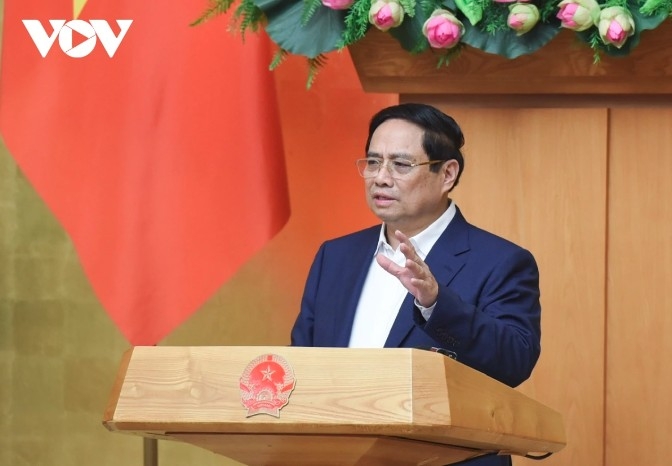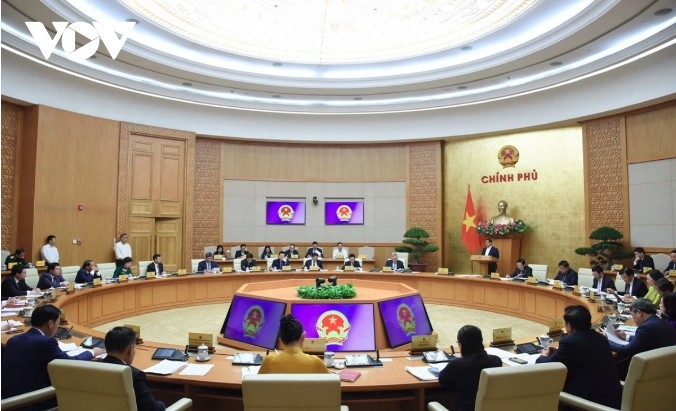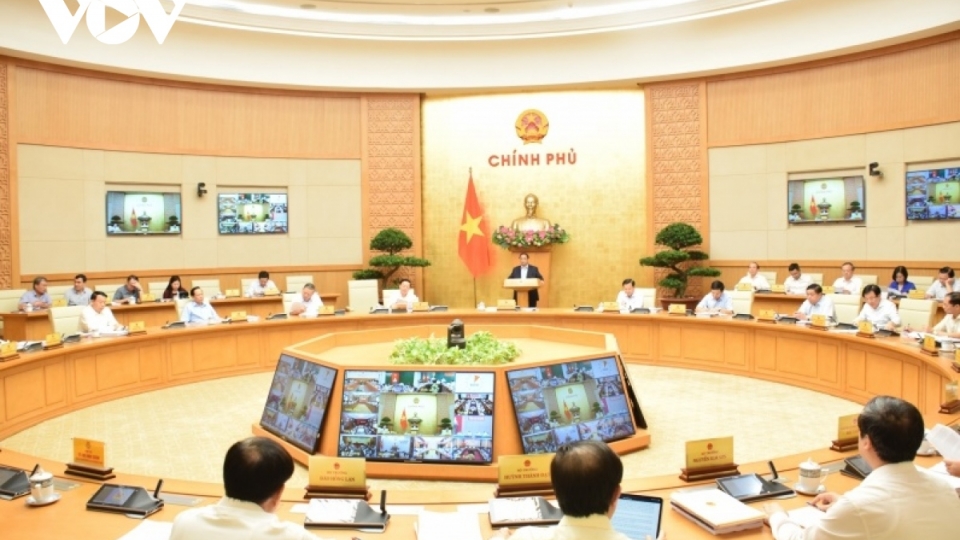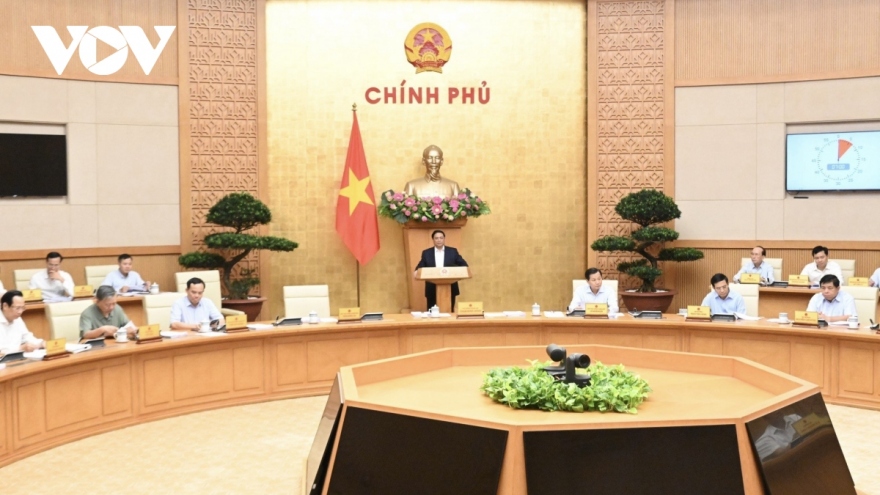Cabinet meeting focuses on May results, plans priorities for months ahead
VOV.VN - Prime Minister Pham Minh Chinh chaired a regular government meeting for May in Hanoi on June 4 to review the socio-economic performance in May and the first five months of 2025; assess the allocation and disbursement of public investment capital; evaluate the implementation of national target programs; and set key tasks for June and the coming period.
In his opening speech, the Government chief noted that May saw ongoing complex and unpredictable developments globally, including trade tensions and the US’s reciprocal tariff policies, which pose risks and uncertainties. Economic growth and trade in 2025 are forecast with caution amid escalating armed conflicts, intense strategic competition, and increasing non-traditional security threats worldwide, affecting major markets and global supply chains.
Domestically, the government and the Prime Minister have actively pursued synchronized implementation of tasks and solutions. Focus has been on restructuring two-tier local government, promoting economic growth targets above 8%, and responding to the US’s new tariff policies.
Efforts continue on the implementation of the Politburo’s four major resolutions; thorough preparation for the 9th session of the 15th National Assembly with a record submission of 44 draft laws and resolutions; and the organization of party congresses in the lead up to the 14th National Party Congress.
Despite difficulties, tight deadlines, and complex conditions, socio-economic indicators have shown positive trends. The macroeconomy remains stable with controlled inflation and balanced major economic factors. On June 2, electricity consumption hit a record high, yet supply remained secure.
Budget deficits and public debt were well-managed, growth continued, and agriculture, industry, and services all recorded positive development.
Attention was given to the cultural and social affairs. Social welfare measures were in place, including resolutions on social housing, support for policy beneficiaries, and programs to eliminate substandard housing. Notably, living standards improved and political stability were maintained alongside strengthened national defence, security, and public order. Meanwhile, diplomatic ties were strengthened, and efforts to resolve prolonged projects involving around US$240 billion in capital and over 200,000 hectares of land continued.

International organizations, countries, and partners have praised Vietnam’s socio-economic progress. However, the Government leader acknowledged ongoing challenges such as strong macroeconomic management pressure, difficulties in many production and business sectors, a sluggish real estate market, volatile gold trading, and complicated issues around smuggling, counterfeit goods, and food safety.
Export activities have picked up, especially with major and emerging markets like China, Brazil, Japan, and new product lines such as halal food, but further promotion is needed. Administrative procedures remain cumbersome in some areas, and issues with drug control and cybersecurity pose ongoing threats.
PM Chinh emphasized that ministries and agencies must provide clear and specific responses to proposals and recommendations from localities and businesses. Officials must uphold discipline, responsibility, and adhere strictly to their roles and authority in communication.
Government members were tasked to focus discussions on socio-economic performance in May and the first five months, along with key solutions for June and beyond. They were urged to analyze new developments and challenges, proposing timely, flexible, and effective guidance for ministries, sectors and localities. Priority should be given to organizing two-tier local governments, holding party congresses toward the 14th Party Congress, and meeting growth targets while fulfilling the 2025 and term goals.
Underlining the heavy workload and high demands with limited time, Chinh called on all cabinet members, especially local authorities, to be proactive, dynamic, and creative in completing tasks with high quality.
At the meeting, the Ministry of Finance reported that in the first five months of 2025, the government and Prime Minister issued 115 legal documents and 2,574 directives; organized more than 1,000 meetings and seminars and field visits to oversee key infrastructure projects. Many policies and measures directed early this year have begun to show results.
Consequently, the socio-economic performance in May and the first five months improved compared to the previous month and the same period last year, providing momentum to surpass development targets in June and beyond.
The macroeconomy remains stable with controlled inflation and ongoing growth. The consumer price index (CPI) rose 3.21% on average over five months compared to last year’s corresponding period.
The monetary market remained steady, with lending interest rates continuing to decline, particularly for short-term loans. State budget revenue reached nearly 58% of the plan, marking a 24.5% increase year on year. Regular spending soared 27.7%, with strict savings on regular expenses to support socio-economic development, defence, security, debt repayments, and social policies.
Trade turnover grew strongly in May, with exports rising 14% and a trade surplus estimated at US$4.67 billion. Public investment disbursement was accelerated, reaching an estimated VND199.3 trillion (24.13% of the Prime Minister’s plan), exceeding the same period last year by 2.5 percentage points and VND56 trillion.
Key economic sectors maintained positive growth. The industrial production index (IIP) rose 8.8% in five months. Retail sales and service revenues increased 9.7%. The Purchasing Managers’ Index (PMI) in May stood at 49.8 points. Tourism expanded, with over 9.2 million international arrivals in the five-month period, a 21.3% increase. Foreign direct investment (FDI) remained a bright spot with US$18.4 billion in registered capital, up 51.1%, and US$8.9 billion were realized, up 7.9% on-year.




